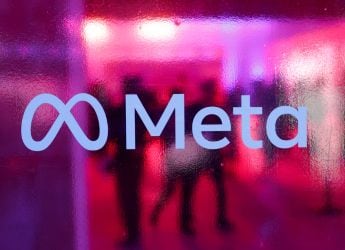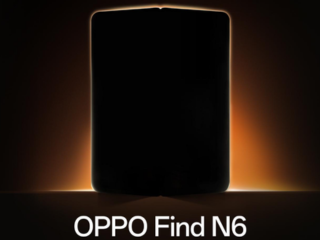- Home
- Social networking
- Social networking News
- Facebook Pledges $1 Billion to Support News Media Over Next Three Years, Defends Australia Blackout
Facebook Pledges $1 Billion to Support News Media Over Next Three Years, Defends Australia Blackout
Facebook and Google have both devoted money to supporting journalism in the past, citing its critical role in democracies.

Facebook drove some 5.1 such "free referrals" to Australian news publishers last yea according to Clegg
Facebook pledged to invest at least $1 billion (roughly Rs. 7,230 crore) to support journalism over the next three years as the social media giant defended its handling of a dispute with Australia over payments to media organisations.
Nick Clegg, head of global affairs, said in a statement that the company stands ready to support news media while reiterating its concerns over mandated payments.
"Facebook is more than willing to partner with news publishers," Clegg said after Facebook restored news links as part of a compromise with Australian officials.
"We absolutely recognise quality journalism is at the heart of how open societies function - informing and empowering citizens and holding the powerful to account."
Facebook and Google have both devoted money to supporting journalism in the past, citing its critical role in democracies.
Clegg defended the California titan in a blog post titled "The Real Story of What Happened With News on Facebook in Australia."
The social media platform came under fire after it blanked out the pages of media outlets for Australian users and blocked them from sharing any news content, rather than submit to the proposed legislation.
Clegg contended in his post that at the heart of the controversy is a misunderstanding about the relationship between Facebook and news publishers.
News groups share their stories at the social network, or make them available for Facebook users to share with features such as buttons designed into websites, Clegg noted.
Facebook drove some 5.1 such "free referrals" to Australian news publishers last year, worth an estimated 407 million Australian dollars, according to Clegg.
"The assertions - repeated widely in recent days - that Facebook steals or takes original journalism for its own benefit always were and remain false," Clegg said.
"We neither take nor ask for the content for which we were being asked to pay a potentially exorbitant price."
'Erred' enforcement
Clegg said that to comply with the law as originally proposed in Australia, "Facebook would have been forced to pay potentially unlimited amounts of money to multi-national media conglomerates under an arbitration system that deliberately misdescribes the relationship between publishers and Facebook."
He maintained that in blacking out all news in the country, "we erred on the side of over-enforcement" and acknowledged that "some content was blocked inadvertently" before being restored.
After two decades of light-touch regulation, tech giants such as Google and Facebook are coming under increased government scrutiny.
In Australia, regulators have zeroed in on their online advertising dominance and its impact on struggling news media.
According to Australia's competition watchdog, for every $100 (roughly Rs. 7,230) spent on online advertising, Google captures $53 (roughly Rs. 3,830), Facebook takes $28 (roughly Rs. 2,020) and the rest is shared among others.
To level the playing field, Australia wants Google and Facebook to pay for using expensive-to-produce news content in their searches and feeds.
"It is understandable that some media conglomerates see Facebook as a potential source of money to make up for their losses, but does that mean they should be able to demand a blank check?" Clegg asked rhetorically.
"It's like forcing car makers to fund radio stations because people might listen to them in the car - and letting the stations set the price."
World Wide Web inventor Tim Berners-Lee recently warned that introducing the precedent of charging for links could open a Pandora's Box of monetary claims that would break the Internet.
Is Samsung Galaxy S21+ the perfect flagship for most Indians? We discussed this on Orbital, our weekly technology podcast, which you can subscribe to via Apple Podcasts, Google Podcasts, or RSS, download the episode, or just hit the play button below.
For details of the latest launches and news from Samsung, Xiaomi, Realme, OnePlus, Oppo and other companies at the Mobile World Congress in Barcelona, visit our MWC 2026 hub.
Related Stories
- Samsung Galaxy Unpacked 2026
- iPhone 17 Pro Max
- ChatGPT
- iOS 26
- Laptop Under 50000
- Smartwatch Under 10000
- Apple Vision Pro
- Oneplus 12
- OnePlus Nord CE 3 Lite 5G
- iPhone 13
- Xiaomi 14 Pro
- Oppo Find N3
- Tecno Spark Go (2023)
- Realme V30
- Best Phones Under 25000
- Samsung Galaxy S24 Series
- Cryptocurrency
- iQoo 12
- Samsung Galaxy S24 Ultra
- Giottus
- Samsung Galaxy Z Flip 5
- Apple 'Scary Fast'
- Housefull 5
- GoPro Hero 12 Black Review
- Invincible Season 2
- JioGlass
- HD Ready TV
- Latest Mobile Phones
- Compare Phones
- Apple iPhone 17e
- AI+ Pulse 2
- Motorola Razr Fold
- Honor Magic V6
- Leica Leitzphone
- Samsung Galaxy S26+
- Samsung Galaxy S26 Ultra
- Samsung Galaxy S26
- Asus TUF Gaming A14 (2026)
- Asus ProArt GoPro Edition
- Apple iPad Air 13-Inch (2026) Wi-Fi + Cellular
- Apple iPad Air 13-Inch (2026) Wi-Fi
- Huawei Watch GT Runner 2
- Amazfit Active 3 Premium
- Xiaomi QLED TV X Pro 75
- Haier H5E Series
- Asus ROG Ally
- Nintendo Switch Lite
- Haier 1.6 Ton 5 Star Inverter Split AC (HSU19G-MZAID5BN-INV)
- Haier 1.6 Ton 5 Star Inverter Split AC (HSU19G-MZAIM5BN-INV)

















